PENGUIN TWENTIETH-CENTURY CLASSICS EDWIN ARLINGTON ROBINSON:
SELECTED POEMS Edwin Arlington Robinson (18691935) grew up in Gardiner, Maine, attended Harvard University, worked as a time checker in the New York subway, and won the Pulitzer Prize for poetry three times. The author of over eighteen books of lyric and narrative poetry as well as plays, Robinson remains one of the most quietly influential and memorable poets of twentieth-century America. Robert Faggen is Associate Professor of Literature at Claremont McKenna College and the author of
Robert Frost and the Challenge of Darwin (University of Michigan Press) and editor of
Striving Towards Being: The Letters of Thomas Merton and Czeslaw Milosz (Farrar, Straus & Giroux). EDWIN ARLINGTON ROBINSON

S ELECTED P OEMS EDITED WITH AN INTRODUCTION BY
ROBERT FAGGEN

PENGUIN BOOKS Published by the Penguin Group Penguin Putnam Inc., 375 Hudson Street, New York, New York 10014, U.S.A. Penguin Books Ltd, 27 Wrights Lane, London W8 5TZ, England Penguin Books Australia Ltd, Ringwood, Victoria, Australia Penguin Books Canada Ltd, 10 Alcorn Avenue, Toronto, Ontario, Canada M4V 3B2 Penguin Books (N.Z.) Ltd, 182190 Wairau Road, Auckland 10, New Zealand Penguin Books Ltd, Registered Offices: Harmondsworth, Middlesex, England First published in Penguin Books 1997 Copyright Robert Faggen, 1997 All rights reserved LIBRARY OF CONGRESS CATALOGING IN PUBLICATION DATA Robinson, Edwin Arlington, 18691935. [Poems.
Selections] Edwin Arlington Robinson/Selected poems; edited with an introduction by Robert Faggen. p. cm. Includes bibliographical references (p. ). ISBN: 978-1-101-66202-1 I.
Faggen, Robert. II. Title. PS3535.025A6 1997 811.52dc21 97-13727 Designed by Michael Mendelsohn Except in the United States of America, this book is sold subject to the condition that it shall not, by way of trade or otherwise, be lent, re-sold, hired out, or otherwise circulated without the publishers prior consent in any form of binding or cover other than that in which it is published and without a similar condition including this condition being imposed on the subsequent purchaser. This volume of the selected poems of Edwin Arlington Robinson is dedicated to the memory of
Joseph Brodsky (19401996).
INTRODUCTION
Edwin Arlington Robinson is one of Americas greatest poets, a fact well known to those who appreciate the power of English meters and the skillful handling of a body of sound to illuminate and shadow character in surprising and even terrifying ways.
Robinsons interest in drama rather than in ecriture, in the perception of character rather than in introspective voyaging, have left him unjustly neglected by contemporary critics and, more important, readers. And his popularity during his own lifetime seems also to have kept the profound suspicious. But Robinsons technical skill as well as his relentless quest to discover what lies beyond human masquerade have created a powerful body of poems. Before Ezra Pound trumpeted the mantra of modernism, Make it new, Robinson pioneered and mastered, as Robert Frost said, the old-fashioned way to be new, exacting subtle but all the more powerful effects from refining and refreshing the genius of traditional forms and meters. Robinsons characters are among the most memorable in American literature, and his genius rested in an ability to uncover the royal suffering of individuals beneath the veneer of affability and the postures of insolence and irascibility. He found heroic dignity and tragic passion and ambition lurking in the shadows of America.
Before Pound and T. S. Eliot took their dissatisfaction with turn-of-the-century American culture to Europe, Robinson was steadily eroding the control of the genteel tradition in American letters by moving into the remote and neglected regions of life in the American village. His achievement made the scene ripe for all variety of moderns through cultivation of a subtle anti-poetry, avoiding Victorian pieties while working within traditional and publicly available forms to suggest human fear in the face of agonizing choices and constraints. His achievement is all the more remarkable because many of his most memorable dramatic revelations occur in sonnets or in lyrics of only seven or eight stanzas. B. B.
Yeats could match Robinsons ability to invest the sonnet with so much drama. He suggests realms of grief, sorrow, and passion in crafted, formal verse that defines the boundaries of what can and cannot be said about another human being. His silences and sense of irony tell much more than longer narratives, and he truly fulfilled what he wrote in one of his later sonnets, The Sheavesthe ideal of conveying a mighty meaning of a kind/That tells the more the more it is not told. Richard Cory remains one of the most famous of these characters, probably too famous because of the memorable, violent irony of the poem. A man of royal bearing, he appears to the uncomprehending narrator, a collective we, enviable for his wealth. But their perception of him reveals the limitations of their standards of judgment.
It is often the case in Robinson that the narrators represent the collective and democratizing society of the village, uneasy about the ambiguous difference they sense in these strange and often extraordinary individuals. This tension in perception of others at once better and worse goes to the heart of American pastoral literature and its anxieties about equality. Corys superiority rests in something beyond material wealth but is a grief that leads to suicide. What is wrong with him? Perhaps we should not ask any more than we should ask what is wrong with Herman Melvilles Bartleby or J. D. Salingers Seymour Glass, except to say that these characters are painfully out of joint with the society in which they live and carry within them a tragic sense of the worlds spiritual mediocrity.
If in the words of Melvilles lawyer in Bartleby, misery hides aloof, many of Robinsons best charactersReuben Bright, Miniver Cheevy, Richard Cory, Flammonde, the woman of The Poor Relation, Eben Flood of Mr. Floods Party, and the historical figures John Brown and Rembrandtharbor demons and passions in conflict with the worlds indifference, mediocrity, and cruelty. For Robinson presents a complex and ambiguous figure in American thought: the aristocrat castaway, or, as he says of Flammonde, the Prince of Castaways, someone who comes from anywhere and any occupation but whose sometimes comic pride and blindness leads him to a lonely and sometimes nearly mad existence apart from society. Like Melville before him, Robinson was always acutely aware of his characters masksthe roles they chose to play and the ones imposed upon them by society. In Flammonde, Robinson both suggests that his character is only playing and also implies that there may have been something real beneath the mask: He never told us what he was, Or what mischance, or other cause, Had banished him from better days To play the Prince of Castaways. Meanwhile he played surpassing well A part, for most, unplayable; In fine, one pauses, half afraid To say for certain that he played.
Part of the fear generated in Robinson is the inability to say for certain what causes a man or woman to be the way they are; every bit of light in Robinson comes with commensurate shadow, with speculation about What small satanic sort of kink/Was in his brain? What broken link/Withheld him from the destinies/That came so near to being his? Robinson loved great failures, those who from their own crippling demons dwelled in unfulfilled possibility. Robinsons characters are often given both depth and humor by the distance of the narrator. In a masterpiece, Mr. Floods Party, Flood seems possessed of the cryptic mirth Robinson also ascribes to Lincoln but also represents another version of a loon who cannot see that he is dead/Before God lets him die, as Rembrandt says to himself in Rembrandt to Rembrandt. A would-be poet who knows The Rubaiyat and the Song of Roland, Eben Flood (whose name suggests both the ebb and flow of a fluid and wavering character as well as a figure facing annihilation) responds to his life stripped of friends by singing, but only to a phantom of himself, alone, on the edge of nothingness, his vessel of futurity filled with drink. Like Richard Cory or Miniver Cheevy, the distance we feel from the charactersthough it is different in each casemay be equal to the distance they feel from themselves, an ironic detachment that allows them greater dignity than their pathetic or tragic lives would allow.

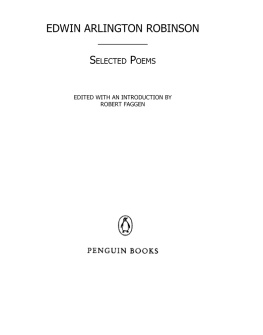

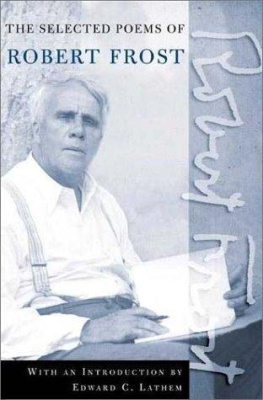
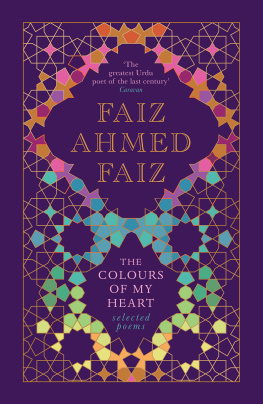
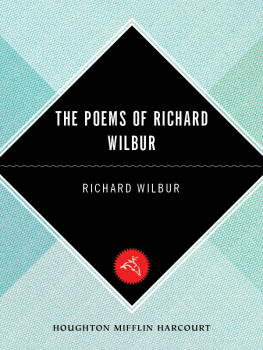
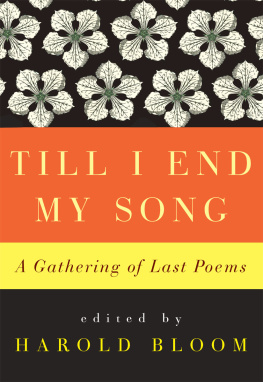
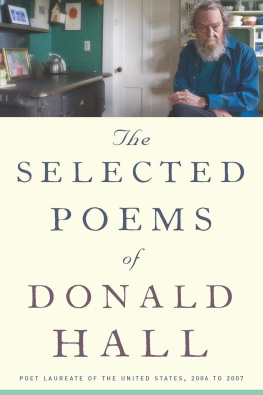
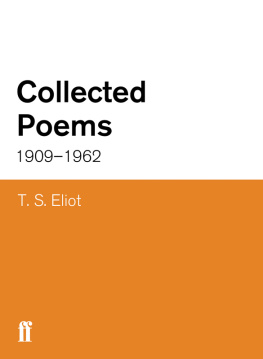

 S ELECTED P OEMS EDITED WITH AN INTRODUCTION BY
S ELECTED P OEMS EDITED WITH AN INTRODUCTION BY PENGUIN BOOKS Published by the Penguin Group Penguin Putnam Inc., 375 Hudson Street, New York, New York 10014, U.S.A. Penguin Books Ltd, 27 Wrights Lane, London W8 5TZ, England Penguin Books Australia Ltd, Ringwood, Victoria, Australia Penguin Books Canada Ltd, 10 Alcorn Avenue, Toronto, Ontario, Canada M4V 3B2 Penguin Books (N.Z.) Ltd, 182190 Wairau Road, Auckland 10, New Zealand Penguin Books Ltd, Registered Offices: Harmondsworth, Middlesex, England First published in Penguin Books 1997 Copyright Robert Faggen, 1997 All rights reserved LIBRARY OF CONGRESS CATALOGING IN PUBLICATION DATA Robinson, Edwin Arlington, 18691935. [Poems.
PENGUIN BOOKS Published by the Penguin Group Penguin Putnam Inc., 375 Hudson Street, New York, New York 10014, U.S.A. Penguin Books Ltd, 27 Wrights Lane, London W8 5TZ, England Penguin Books Australia Ltd, Ringwood, Victoria, Australia Penguin Books Canada Ltd, 10 Alcorn Avenue, Toronto, Ontario, Canada M4V 3B2 Penguin Books (N.Z.) Ltd, 182190 Wairau Road, Auckland 10, New Zealand Penguin Books Ltd, Registered Offices: Harmondsworth, Middlesex, England First published in Penguin Books 1997 Copyright Robert Faggen, 1997 All rights reserved LIBRARY OF CONGRESS CATALOGING IN PUBLICATION DATA Robinson, Edwin Arlington, 18691935. [Poems.